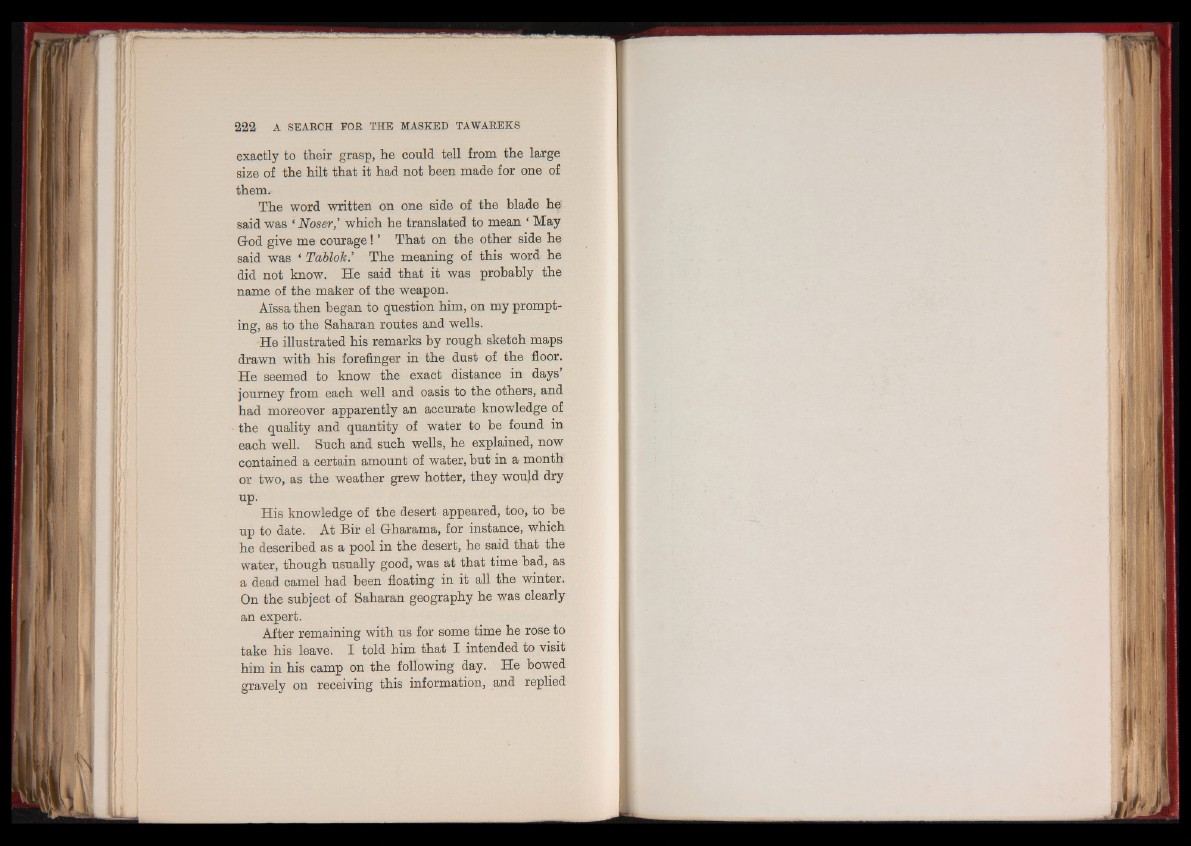
exactly to their grasp, he could tell from the large
size of the hilt that it had not been made for one of
them.
The word written on one side of the blade hp
said was ‘ Noser,’ which he translated to mean ' May
God give me courage! ’ That on the other side he
said was ‘ TabloJc.’ The meaning of this word he
did not know. He said that it was probably the
name of the maker of the weapon.
Alssa then began to question him, on my prompting,
as to the Saharan routes and wells.
He illustrated his remarks by rough sketch maps
drawn with his forefinger in the dust of the floor.
He seemed to know the exact distance in days
journey from each well and oasis to the others, and
had moreover apparently an accurate knowledge of
the quality and quantity of water to be found in
each well. Such and such wells, he explained, now
contained a certain amount of water, but in a month
or two, as the weather grew hotter, they would dry
up.
His knowledge of the desert appeared, too, to be
up to date. At Bir el Gharama, for instance, which
he described as a pool in the desert, he said that the
water, though usually good, was at that time bad, as
a dead camel had been floating in it all the winter.
On the subject of Saharan geography he was clearly
an expert.
After remaining with us for some time he rose to
take his leave. I told him that I intended to visit
him in his camp on the following day. He bowed
gravely on receiving this information, and replied